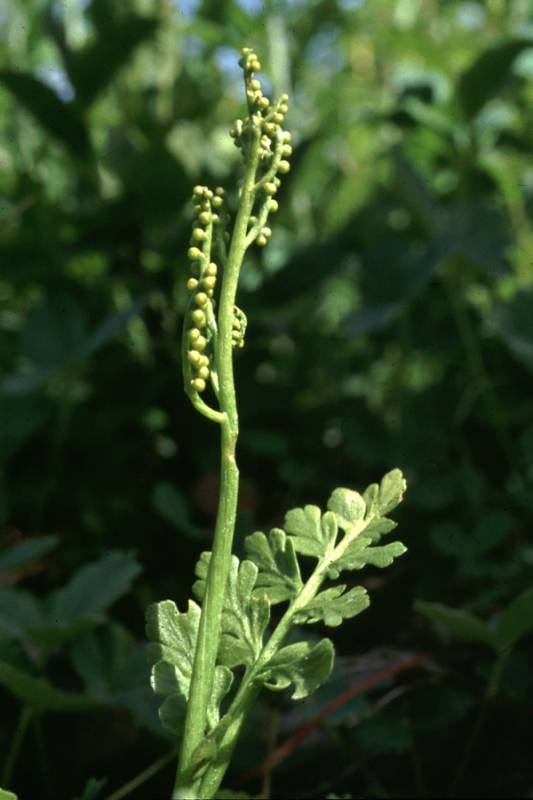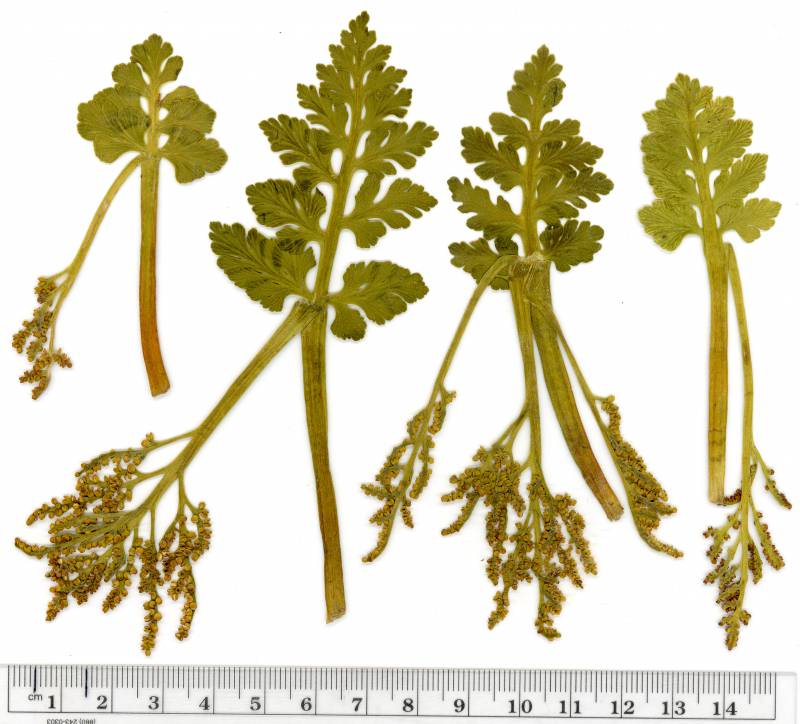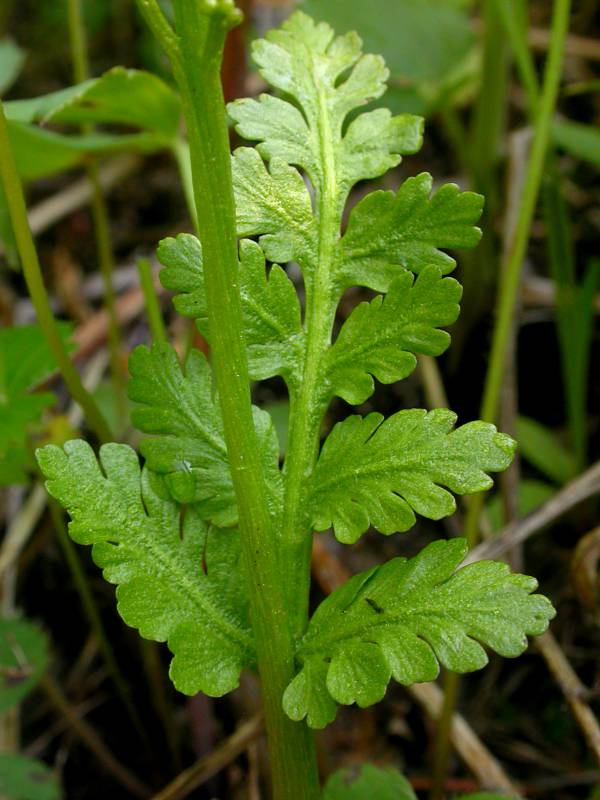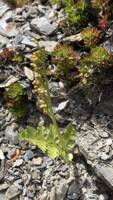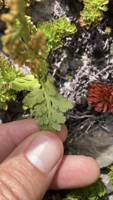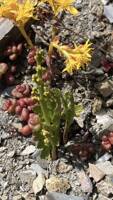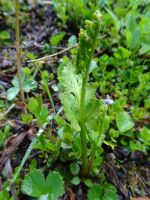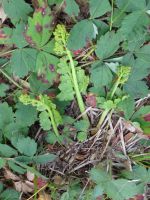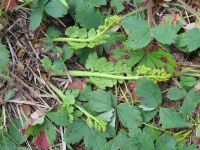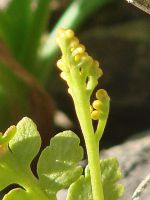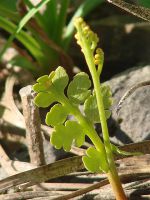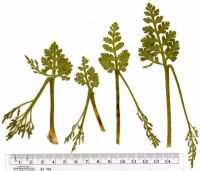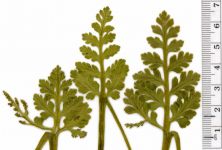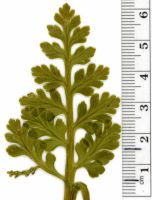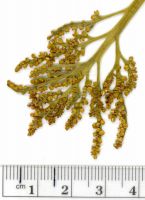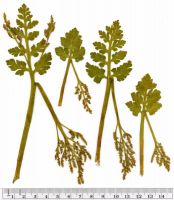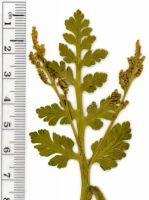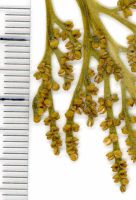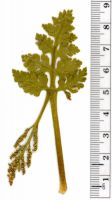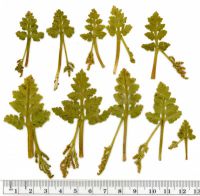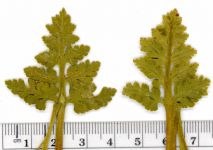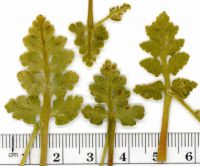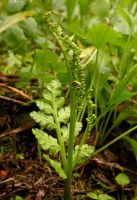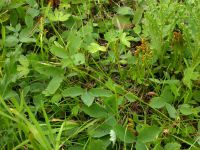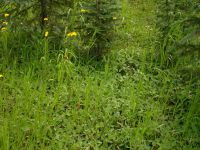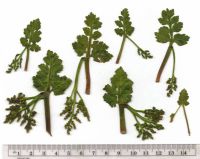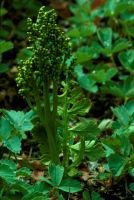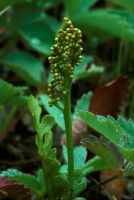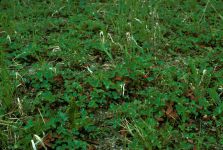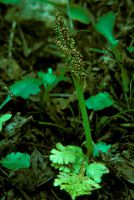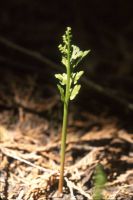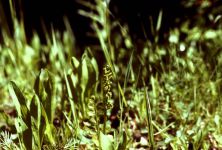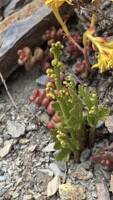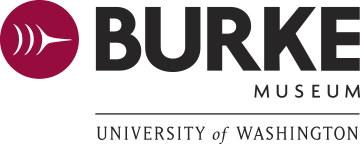Distribution: Occurring on both sides of the Cascades crest in Washington; Alaska to California, east to the Rocky Mountains.
Habitat: Moist subalpine meadows to closed forests, often near seeps.
Spores: June-August
Origin: Native
Growth Duration: Perennial
Conservation Status: Not of concern
Terrestrial perennials up to 15 cm, from 10 or fewer yellow to brown roots 0.5-1.5 mm in diameter at 1 cm from base.
Trophophore blade bright and shiny, oblong-deltate, 1-2-pinnate, up to 8 cm long and 5 cm broad, stalk 0-2 mm; trophophore pinnae in up to 7 pairs, slightly ascending, space between 1st and 2nd pinnae equal to or slightly greater than the spaces between 2nd and 3rd pairs, basal pinna pair approximately same size and cutting as adjacent pair, obliquely ovate to lanceolate-oblong to spatulate, lobed deeply and regularly or pinnulate, lobed to apex, margins entire to very shallowly scalloped, apex truncate to slightly acute, venation pinnate; sporophores 2-pinnate, 1-2 times the length of the trophophore.
Sporangium nearly completely exposed, borne in 2 rows on pinnate sporophore branches; spore surfaces wrinkled and somewhat warty.
Publication: Amer. Fern J. 19: 11. 1929.
Botrychium boreale J. Milde ssp. obtusilobum (Rupr.) R.T. Clausen
PNW Herbaria: Specimen records of Botrychium pinnatum in the Consortium of Pacific Northwest Herbaria database
WA Flora Checklist: Botrychium pinnatum checklist entry
OregonFlora: Botrychium pinnatum information
E-Flora BC: Botrychium pinnatum atlas page
CalPhotos: Botrychium pinnatum photos

